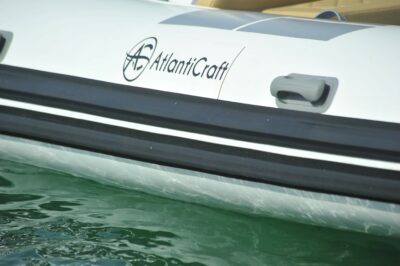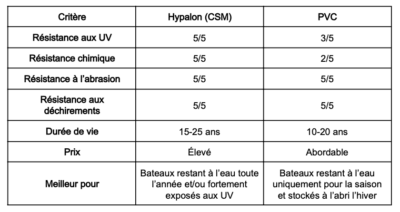PVC vs Hypalon: Which material should you choose for RIB floats?
When purchasing a RIB, choosing the right float material is crucial for durability and strength. The two main materials used are PVC and Hypalon. Which is best for your use?
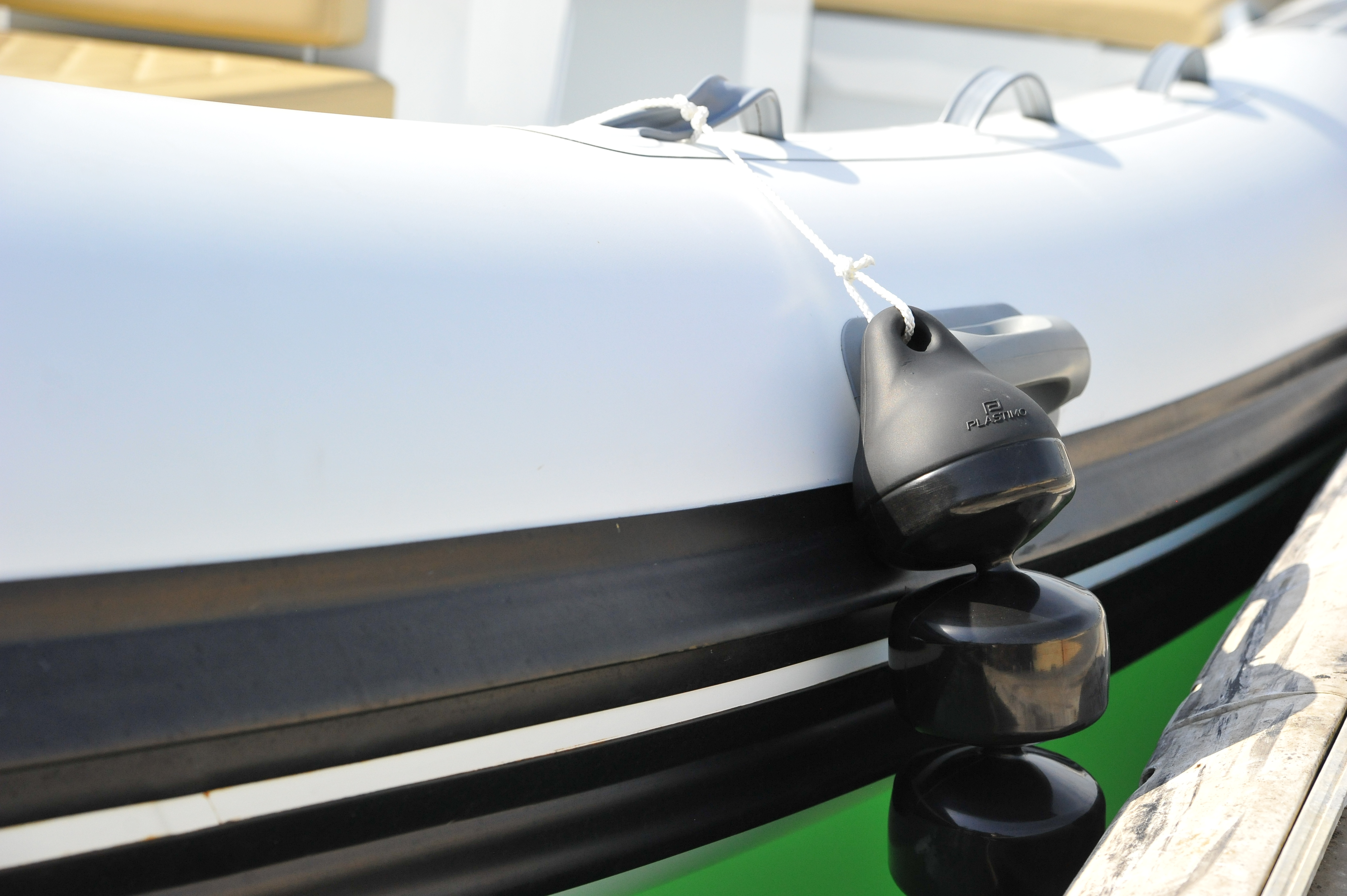
Strength and durability
Hypalon: The professional choice
Hypalon is known for its remarkable resistance to UV rays, making it an ideal material for prolonged exposure to sunlight. It also offers excellent resistance to hydrocarbons, solvents, and marine products. With proper maintenance, a Hypalon float can last 15 to 25 years.
PVC: A high-performance and economical alternative
PVC is a popular solution for its good value for money. However, it requires special care in case of prolonged exposure to the sun, with the recommended application of an anti-UV treatment. Its resistance to chemicals is more limited, which means avoiding certain hydrocarbons or detergents. Depending on the maintenance provided and usage conditions, its lifespan can vary from 10 to 20 years.
Repairability and maintenance
Hypalon: Durable and effective repairs
Hypalon offers excellent repairability thanks to the use of two-component adhesives that create a strong and durable chemical bond with the material. Its slightly rough surface facilitates the anchoring of the adhesive, even with cursory sanding. The repairs carried out are often discreet and durable, to the point of lasting as long as the float itself.
PVC: Repairable with rigor and precision
PVC can also be effectively repaired, provided that careful surface preparation is followed, including thorough cleaning and fine sanding. The adhesives used, often quick-setting, allow for rapid repairs, although they require strict adherence to application conditions to ensure optimal durability over time.
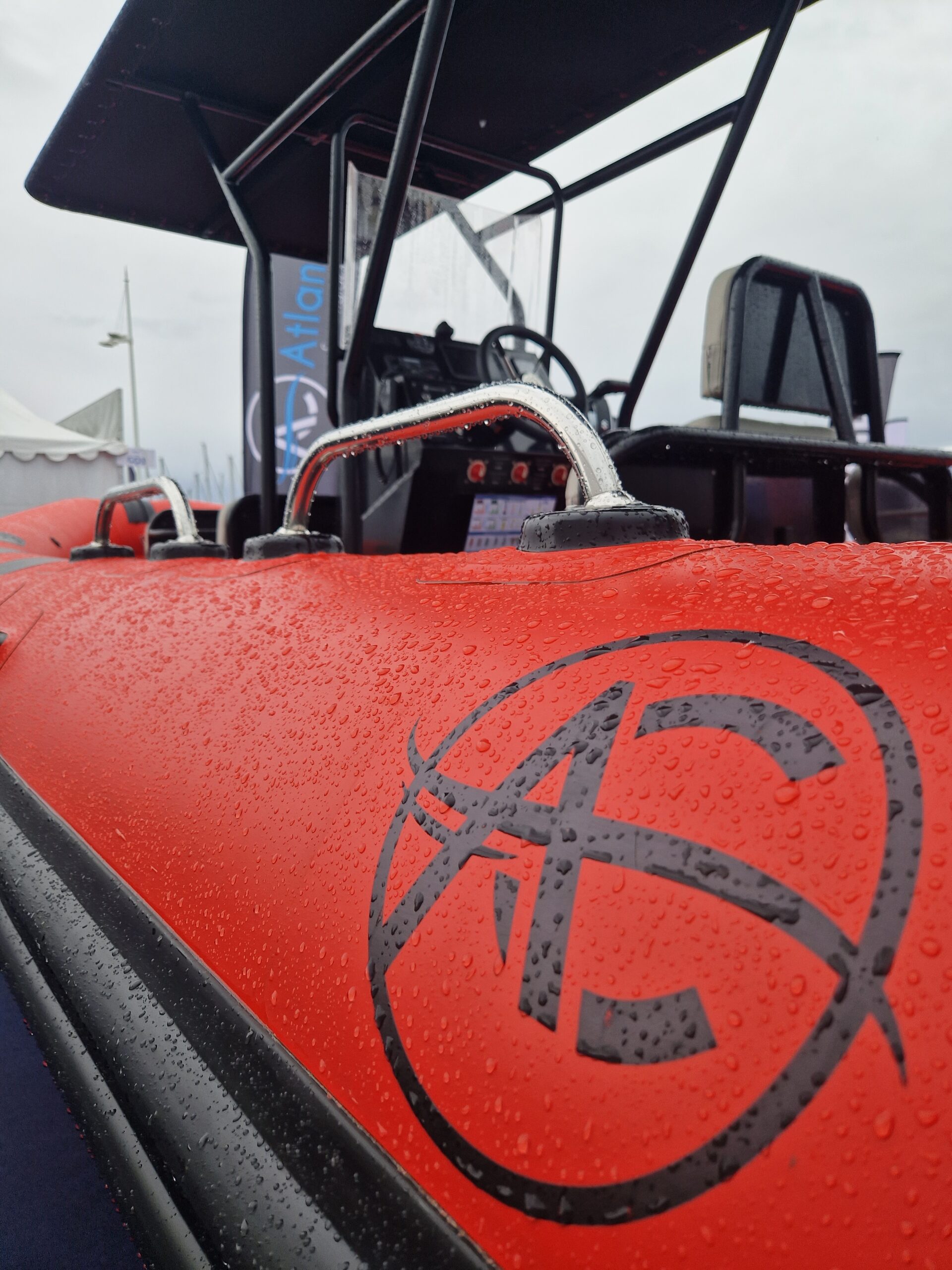
Which material should you choose depending on the use?
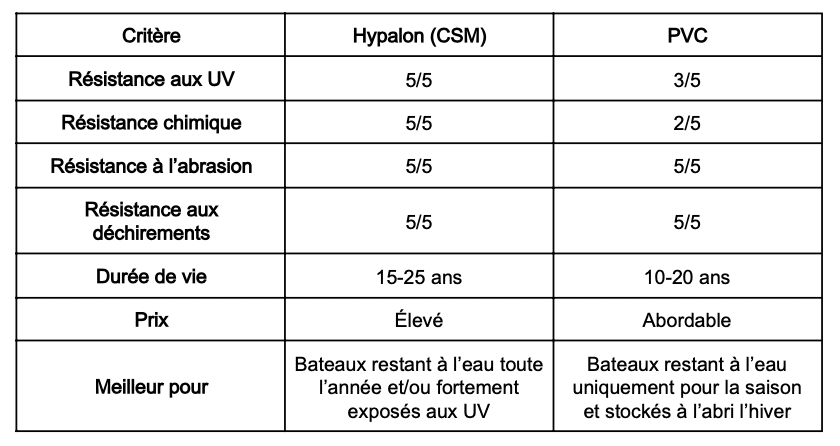
Conclusion: PVC or Hypalon?
- For intensive, professional use (NUC, coastguard, rental) or for prolonged exposure to UV, choose Hypalon.
- For seasonal use, choose PVC.
PVC vs Hypalon: Complete comparison to help you choose the right floats for your RIB
When purchasing a semi-rigid boat, the choice of material Float construction is crucial for durability and strength. In this PVC vs. Hypalon comparison, discover the key differences to help you choose the right material for your RIB floats. Which one is best for your application?
PVC vs Hypalon Comparison: Strength and Durability
Hypalon: The professional choice
Nautical professionals appreciate Hypalon for its remarkable resistance to UV rays, making it ideal for prolonged exposure to the sun. This material is also highly resistant to hydrocarbons, solvents, and marine products. With proper maintenance, a Hypalon float can last 15 to 25 years.
PVC: A high-performance and economical alternative
Many boaters choose PVC for its good value for money. However, if it's exposed to the sun for a long time, they should apply a UV-resistant treatment to protect it. Since it's less resistant to chemicals, they avoid certain hydrocarbons or detergents. Depending on care and usage conditions, a PVC float can last between 10 and 20 years.
Which material is easiest to repair?
Hypalon: Durable and effective repairs
Repairers appreciate Hypalon for its exceptional repairability. By using two-component adhesives, they create a strong and durable chemical bond with the material. Its slightly rough surface facilitates the adhesion of the adhesive, even after rough sanding. This allows them to create repairs that are often discreet and durable, and can last as long as the float itself.
PVC: Repairable with rigor and precision
Repairers can also effectively repair PVC, provided they properly prepare the surface with thorough cleaning and fine sanding. They generally use fast-setting adhesives, which allow for rapid interventions, provided that the application conditions are strictly adhered to to ensure a long-lasting hold.
PVC vs Hypalon: our advice on how to choose the right one
- For intensive, professional use (NUC, coastguard, rental) or for prolonged exposure to UV, choose Hypalon.
- For seasonal use, choose PVC.

